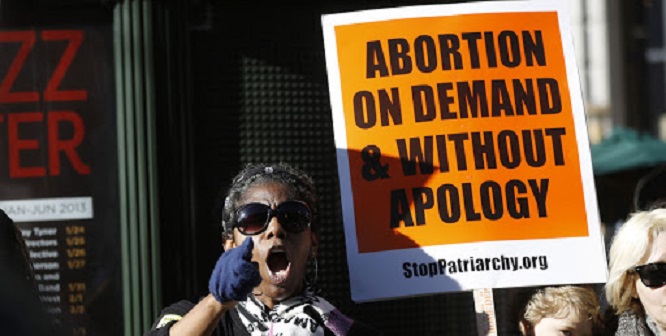An overlooked angle on the abortion debate in the United States and elsewhere emerged in the European Court of Human Rights earlier this month. In the case of S.F.K v Russia, the court found that the human rights of a 20-year-old woman were violated in 2010 when her parents and her doctors forced her to have an abortion. Subsequently police refused to press charges, partly because they felt that the parents were acting in their daughter’s best interests.
The court condemned this as “an egregious form of inhuman and degrading treatment which had not only resulted in a serious immediate damage to her health – that is the loss of her unborn child – but had also entailed long-lasting negative physical and psychological effects.”
This tragic crime is distant both in time and space from the US debate over abortion – but it shows that forced abortion is a reality.
Just published on The New Bioethics website is an article by Australian researcher Greg Pike which analyses the issue of coerced abortions. He claims that
“[there are] legal requirements for coercion screening in some US states. Such laws have been met with strong resistance from prochoice advocates who see them as a hindrance to accessing abortion.”
LifeNews is on GETTR. Please follow us for the latest pro-life news
Little work has been done on the prevalence of forced abortion, although a lot of publicity has been given to forced pregnancies. But this could be a bomb with a long fuse. Pike points out that the “problem” of an unwanted pregnancy used to be “solved” by adoption; nowadays it is normally “solved” by abortion.
The accounts women gave of the way in which coerced adoption operated are similar to the way in which reproductive coercion, and coerced abortion in particular, currently operate. But it took many decades before policies changed or there was a cultural shift that protected women from coercion to adopt out a child.
In what settings do coerced abortions exist?
Pressure from partners: A “Scandinavian study found 20–25% of women experienced pressure to abort their pregnancies.”
A history of intimate partner violence: “women who report multiple abortions are more likely to have a history of IPV compared with those who have only had one.”
China and India: in these societies, coerced abortion has been relatively common – because of population control and because of a preference for male children. China also allegedly forces Uyghur women to have abortions as part of its control of the population.
Coercion from doctors: “the medical profession has at times been guilty of applying considerable pressure to women to abort a pregnancy where testing has revealed an anomaly or risk of one.”
Abortion providers: Marie Stopes International and Planned Parenthood have both been accused of pressuring women into consenting to have an abortion after they arrive at a clinic.
Sex slavery and trafficking: “Forced abortion is an integral part of the trade so that women can be returned to the street as soon as possible.”
Pike laments the fact that there is so little data on Reproductive Coercion (RC). Up to now, researchers have dismissed it as minutia or a myth, possibly because the pro-abortion narrative is that women consent to a difficult choice after careful consideration. But he insists that it probably is a big problem. Based on a UK poll of women’s experience with RC, he believes that as many as 60% of women who have had an abortion experienced pressure.
Whatever the scale of the problem at the moment, it is going to become worse:
This risk would likely be exacerbated by telemedicine abortions, where the absence of medical oversight enables perpetrators to act covertly. Easier access to abortion pills, even by those not intending to personally use them, will also increase the risk of secretly induced abortion – 6% of women in the UK ComRes poll who had experienced RC cited being given pills without their knowledge or consent.
LifeNews Note: Michael Cook is editor of BioEdge where this story appeared.








